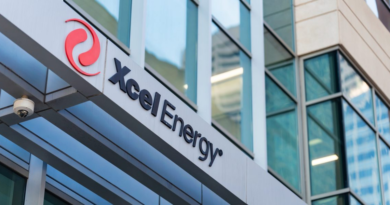What investors should look for as Wall Street prices in a new political and financial outlook after the Trump shooting
Pre-market trading in the U.S. will begin Sunday evening, marking Wall Street’s initial attempt to price in how the assassination attempt on Donald Trump will affect markets.
Ian Bremmer, president of political risk research and consulting firm Eurasia Group, has said the shooting at a campaign rally makes a Trump win in the presidential election more likely. Tesla CEO Elon Musk has already endorsed Trump, and Pershing Square CEO Bill Ackman said he plans to formally endorse him soon.
After President Joe Biden’s disastrous debate performance last month, Wall Street began factoring a Trump victory in November, and bond yields jumped on expectations that tax cuts passed in his first term would be extended and widen deficits. Then yields tumbled over the past week as new inflation data gave the Federal Reserve more leeway to cut rates in the near future and Fed Chairman Jerome Powell sounded increasingly dovish.
But the assassination attempt upends the political landscape up and down the ballot, with control of Congress and the size of the winning majorities important factors too.
Inflation and the Fed
Analysts have warned that Trump’s plans to impose across-the-board tariffs, extend tax cuts, and limit immigration will be inflationary. That could dampen hopes for more aggressive Fed rate cuts, which Citi Research has said could result in 200 basis points of easing.
Meanwhile, Powell and his fellow central bankers have maintained that the Fed is data dependent and won’t act preemptively in anticipation of expected fiscal policies. That suggests the Fed will stay on the course it’s on now until actual conditions change.
But the stock and bond markets play roles in current financial conditions, and they are quick to get ahead of expected policies. And amid a recent Wall Street Journal report that said Trump’s allies have drawn up plans to erode the Fed’s independence, an election victory could raise concerns the Fed will monetize U.S. debt by buying more Treasuries and stoking inflation.
While former New York Fed President Bill Dudley told Bloomberg TV last month that it’s not easy to reconfigure the Fed, he warned “just the mere attempt to take control of the Fed, to diminish the Fed’s independence, could be the spark that rattles markets.”
Regulation
Crypto investors were an early indication of how the election could play out, as they sent the price of Bitcoin up Saturday evening. Trump is pro-crypto, while even some of Biden’s backers are pushing back against the SEC and its handling of the industry.
Mark Cuban reportedly told a White House adviser recently that “You all have permission to quote me saying that Biden should fire Gary Gensler.” He confirmed that quote to Fortune Friday, adding “He is the problem.”
Meanwhile, the Supreme Court handed regulators a string of defeats, potentially giving Trump and Republican allies in Congress a freer hand to deregulate. It could also open the door to more mergers and acquisitions if regulators turn less skeptical about industry consolidation. That’s as a new twist as emerged among tech giants to “acqui-hire” AI startups to avoid regulatory scrutiny.
Energy
If Trump wins, then Biden’s policies to tackle climate change would likely give way to policies that favor fossil fuels instead. That’s good for oil and gas stocks, and bad for renewable energy stocks.
The outlook for electric vehicle stocks may could be more mixed. Biden has encouraged U.S. production of EVs and is boosting tariffs on Chinese EVs. Meanwhile, consumers were already favoring hybrids and internal-combustion cars lately, while some conservatives dismissed EVs as too “woke.”
Trump has said he’ll reverse existing laws supporting battery-powered cars, but is also a “huge fan” of Tesla’s Cybertruck, according to Musk. That’s left some hedge funds with no idea what to do about Tesla stock.
Tech and the limits of Washington
In a Financial Times op-ed days before the shooting on Monday, market veteran Ed Yardeni cautioned against assuming that lawmakers in Washington, D.C., are the main drivers of the economy and markets.
He noted that the economy has become technologically driven, with more than half of capital spending on technology, including record highs for business spending on software and R&D. Meanwhile, U.S. capital markets remain sources of financing for start-ups and innovations, he added.
That should help corporate earnings, which will send the stock market to new highs over the rest of the decade, Yardeni predicted.
“History has shown that over time, the U.S. economy and stock market have done well no matter who is in the White House,” he said. “This doesn’t mean that Trump 2.0 would be risk-free. The two big risks under a Trump administration would be: one, a trade war that depresses global growth and revives inflation; second, mounting federal deficits that cause a debt crisis. However, America’s system of political checks and balances continues to work to moderate the extreme policy pursuits of whoever is in the White House.”




